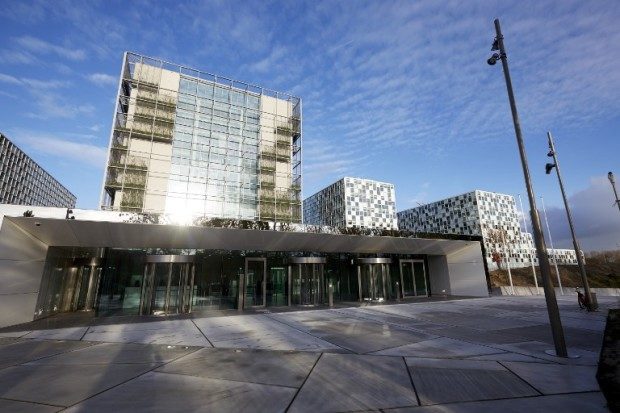MANILA, Philippines—With its continuous move to pursue actions against President Rodrigo Duterte, the International Criminal Court (ICC) is indeed bent on interfering with the sovereignty of the Philippines despite the country’s withdrawal from the tribunal, Malacañang said Friday.
Presidential Spokesperson Salvador Panelo issued the statement after the ICC told the National Union of Peoples’ Lawyers (NUPL), the complainant of the second communication filed against Duterte, that it will analyze the complaint as expeditiously as possible.
READ: 2 complaints vs Duterte on drug war under ICC preliminary examination
“With the ICC writing the National Union of Peoples’ Lawyers a letter on April 4, 2019 saying that it will analyze the latter’s communication in the context of a situation already under preliminary examination by it, it becomes apparent that this institution is indeed bent on interfering with the sovereignty of our Republic even if it means disregarding the Rome Statute, the very instrument which created it,” Panelo said.
The Philippines has pulled out from the ICC after Duterte unilaterally withdrew from the international body after it announced the beginning of its preliminary examination into his brutal war on drugs.
READ: PH exits ICC: Fresh blow to drug war victims’ kin
Duterte and Malacañang claimed that the international tribunal never acquired jurisdiction over the Philippines as the country’s ratification of the Rome Statute — the treaty that created the ICC — was never published in the Official Gazette.
“Even if we assume, for the sake of argument, that the Rome Statute became enforceable in the Philippines, the ICC can still no longer exercise its powers over the country as, in such hypothetical case, our withdrawal already became effective last month,” Panelo pointed out.
He reiterated that it is only when a criminal investigation has commenced prior to the effective date of the withdrawal that the ICC can continue with the case initiated.
“What the ICC, through the Office of the Prosecutor, is conducting is only a preliminary examination and not a criminal investigation or proceeding,” he stressed.
Panelo, who is also Duterte’s chief legal counsel, also cited the principle of complementarity which is enshrined in the Rome Statute.
Complementarity is a law principle that states that there will be no overlapping in jurisdictions.
“According to the Rome Statute, the ICC can only act if there is inability or unwillingness of the State Party to investigate and prosecute its own offenders for the commission of crimes referred thereto,” Panelo said.
He further noted that with the “biased and preconceived actions of the ICC, we cannot blame the Filipino people for thinking that it has taken a politically-motivated obnoxious path aimed at maligning not just this administration but the very Republic of the Philippines.”
NUPL’s complaint, technically called a communication, was the second one against Duterte’s brutal war on drugs.
The first one was filed by lawyer Jude Sabio in April 2017, citing the “continuing mass murder” in the Philippines as shown by the thousands of Filipinos killed in the anti-criminality and anti-drug campaigns that began when Duterte was still mayor of Davao City. / gsg
